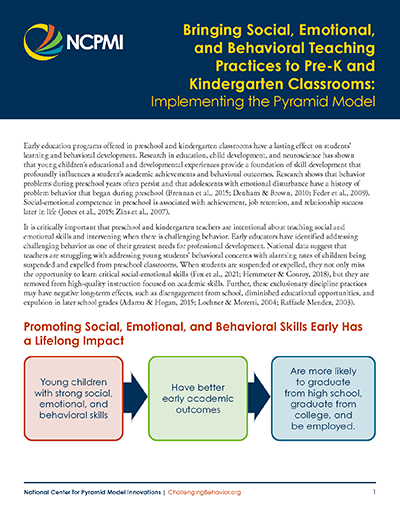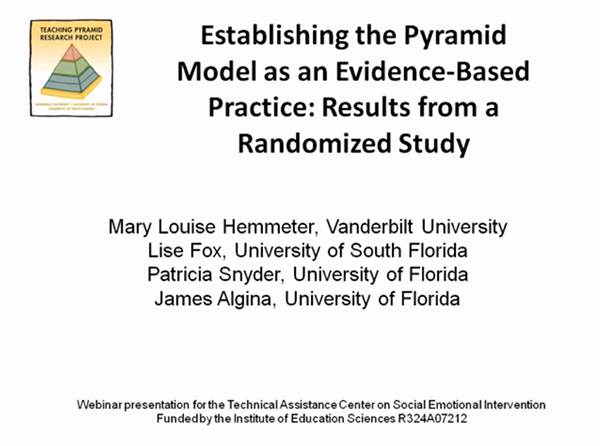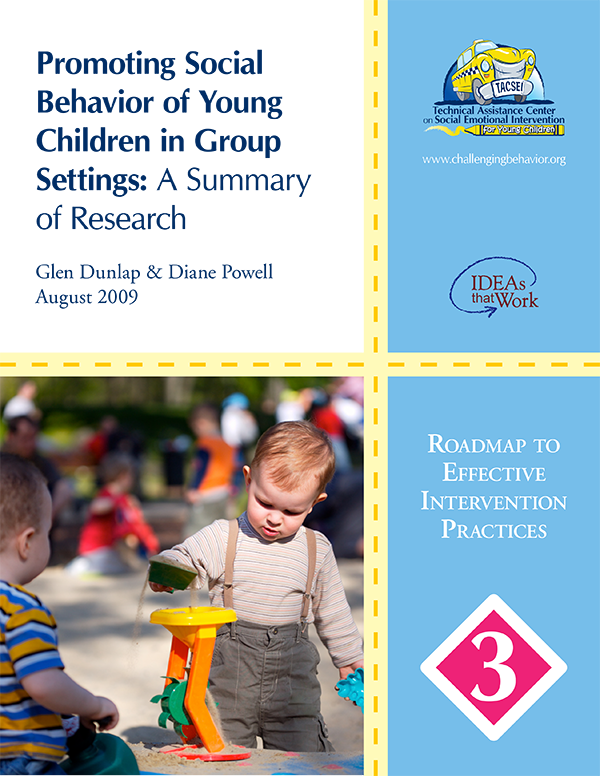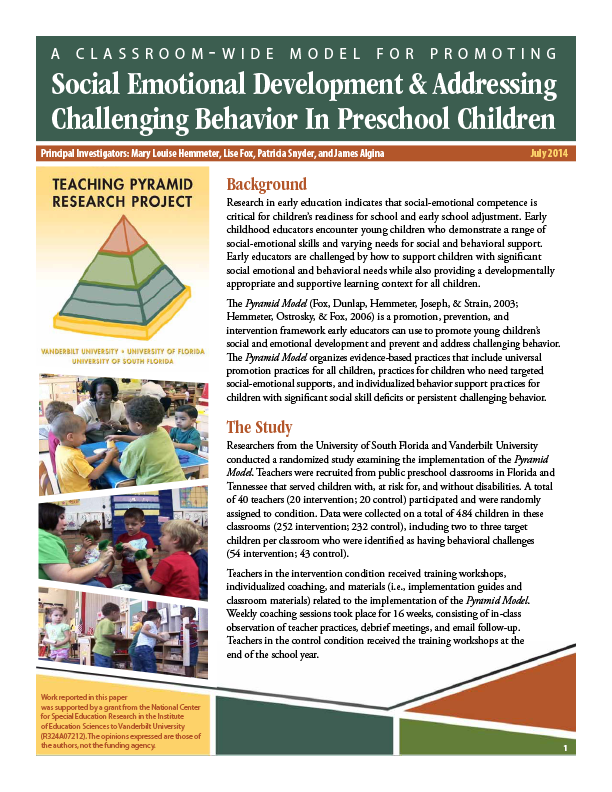Research on implementation of the Pyramid Model shows:
- Children have better social skills and less problem behavior in Pyramid Model classrooms.
- Teachers are able to implement Pyramid Model practices better if they receive training and practice-based coaching.
Florida and Tennessee randomized study results published in 2016
The study was conducted within public school classrooms (40 classrooms and 494 children) enrolling preschool children with and without disabilities in Florida and Tennessee.
Research Findings
- Teachers in the experimental condition who received training and coaching demonstrated statistically significant differences in their implementation of Pyramid Model practices.
- Children enrolled in the experimental classrooms implementing the Pyramid Model demonstrated statistically significant differences in their social skills.
- Target children in the experimental classrooms had statistically significant reductions in problem behavior.
Florida and Tennessee randomized study results published in 2021
This study was conducted within public school classrooms enrolling children with and without disabilities (92 classrooms and 997 children) in Florida and Tennessee.
Research Findings
- Preschool children identified with problem behavior were rated by teachers as having greater improvement in their behavior in Pyramid Model classrooms than children in the control classrooms.
- Preschool children identified with problem behavior were rated by teachers in Pyramid Model classrooms as having greater improvement in their social skills than children in the control classrooms.
- Preschool children identified with problem behavior in Pyramid Model classrooms were observed to have greater growth in their positive social interactions than children in the control classrooms.
- All children in the Pyramid Model classrooms were rated by teachers as having greater growth in their social skills than children in the control classrooms.
- Teachers who received training and coaching in the Pyramid Model implemented the Pyramid Model practices and continued to use the practices a year after coaching ended.
These findings have been published. See the following articles for more information:
Hemmeter, M. L., Snyder, P. A., Fox, L., & Algina, J. (2016). Evaluating the implementation of the Pyramid Model for promoting social emotional competence in early childhood classrooms. Topics in Early Childhood Special Education, 36, 133-146.
Hemmeter, M. L., Fox, L., Snyder, P., Algina, J., Hardy, J., Bishop, C., & Veguilla, M. (2021). Corollary child outcomes of the Pyramid Model professional development efficacy trial. Early Childhood Research Quarterly, 54, 204-218.
Related Resources

A brief that describes the research supporting the implementation of Pyramid Model practices in preschool and kindergarten classrooms.

In this webinar, Mary Louise Hemmeter and Lise Fox discuss a recently completed, randomized trial that examined the implementation of the Pyramid Model within public school preschool classrooms in Tennessee and Florida that included children with disabilities. They describe the research methods, training and supports provided to teachers, and the outcomes for teachers and children including children with challenging behavior. The discussion focuses on issues related to implementation fidelity, coaching, and measuring the outcomes associated with Pyramid Model implementation.

Mary Louise Hemmeter discusses the research that shows that the Pyramid Model is effective for supporting children’s social-emotional development, and preventing and addressing their challenging behavior.

This Roadmap shares practices for promoting adaptive social-emotional behavior of toddlers and preschoolers, with or at risk for disabilities and who have problems with behavior, in group settings.




